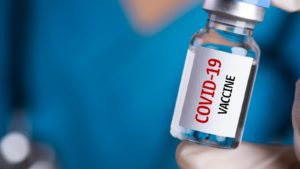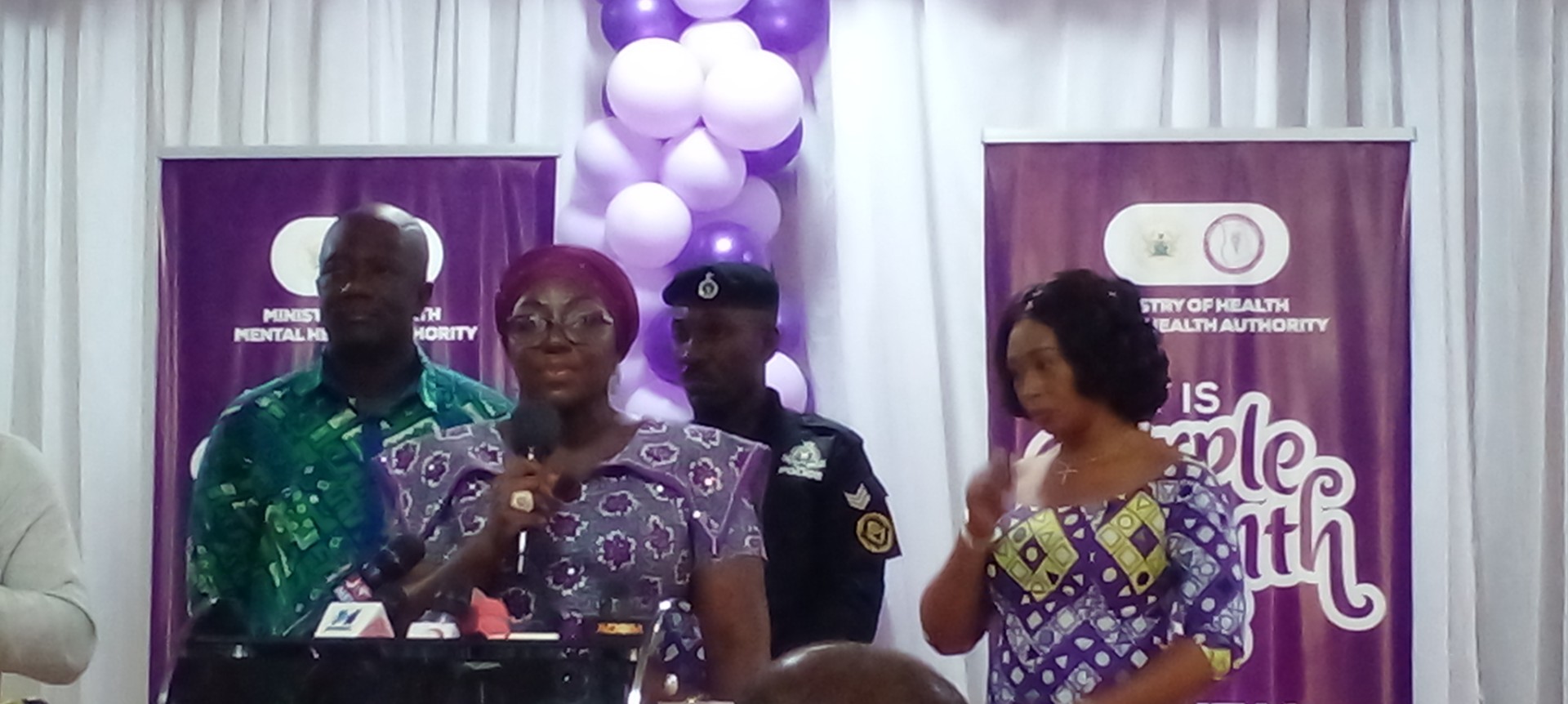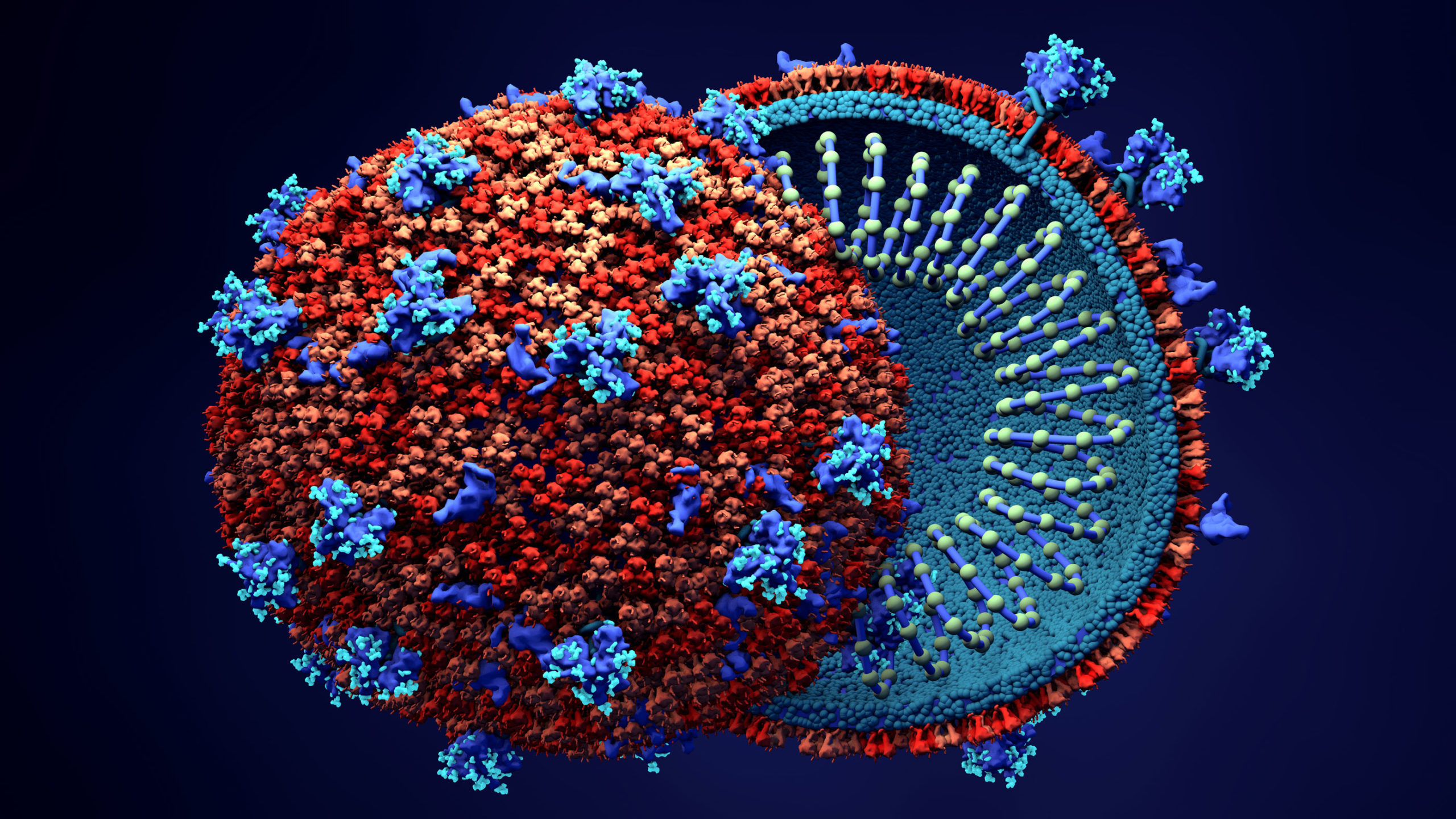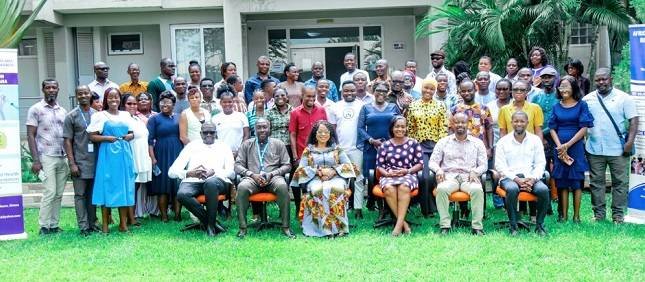

 Ghana has recorded 80 per cent vaccine acceptability among healthcare workers, a great achievement that is expected to further influence the general population’s uptake of COVID-19 vaccines.
Ghana has recorded 80 per cent vaccine acceptability among healthcare workers, a great achievement that is expected to further influence the general population’s uptake of COVID-19 vaccines.
Despite the essential role vaccination plays in the global response to the COVID-19 pandemic, the initial COVID-19 vaccine deployment phase faced hesitancy among healthcare workers in Ghana.
This achievement of vaccine acceptability among health workers would further deepen people’s trust in the COVID-19 vaccine, because health professionals, are among the most trusted in society and could help dispel the misinformation and disinformation among the public.
Health workers are all people engaged in work actions whose primary intent is to improve health, including doctors, nurses, midwives, public health professionals, laboratory technicians, health technicians, medical and non-medical technicians, personal care workers, community health workers, healers, and traditional medicine practitioners
They play a central and critical role in improving access to and quality health care for the population.
They are a critical piece of every health system across the globe and provide essential services that promote health, prevent diseases and deliver health care services to individuals, families, and communities.
The outbreak of the COVID-19 pandemic and the devastating effect on healthcare delivery has re-emphasized the important role of healthcare workers in every health system as their safety is central in the response of nations against the pandemic.
Healthcare workers (HCWs) are among the high-risk groups in contracting and dying from COVID-19.
The World Health Organization (WHO) estimates that over 10,000 HCWs in Africa have been infected with COVID-19 making it a significant occupational health hazard to HCWs.
In Ghana, over 100 HCWs have already been infected and over 100 others have died from the virus. Acceptability and uptake of the COVID-19 vaccine are, therefore, critical to promote the health and safety of HCWs as the war against the pandemic is not over.
Even though the vaccine does not give absolute protection from COVID-19 infection, available empirical data suggests it reduces the risk of hospitalization and other severe outcomes including death.
Globally, as of December 9, 2022, a total of 643,875,406 confirmed cases of COVID-19, including 6,630,082 deaths, have been recorded.
Data from the Ghana Health Service (GHS), however, indicates that a total of 171,023 confirmed COVID-19 cases and a death toll of 1,461 as of December 1, 2022, with 21,179,341 to Vaccine Doses Administered.
The number of vaccines administered includes the 80 per cent of health professionals who have been vaccinated.
During the initial stage of the pandemic in 2019 and Ghana has the record of its first cases in 2020, the public health response generally focused on non-pharmaceutical interventions (NPIs) such as frequent hand washing, physical/social distancing, and the use of face masks in public spaces.
Albeit these NPIs remain essential in the fight against the global pandemic, effective vaccine deployment is an ultimate intervention to propel humanity back to normal lives.
It was in light of this that COVID-19 vaccination became necessary more importantly, among health professionals because of their duty as frontline caregivers while ensuring their safety and protection against the virus.
A 2021 research conducted by three scientists, Dr James Avoka Asamani of the World Health Organization, Dr Christmal Dela Christmals, and Prof. Gerda Reitsma, both at the North-West University in South Africa, indicates that currently, Ghana’s stock of health workers is about 148, 390, growing at 5.6 per cent annually, thus, out of this figure 80 per cent were fully vaccinated and have taken their booster dose.
I am fully vaccinated, says Firdaus Issah, (not her real name) a nurse with the Korle-Bu Teaching Hospital, told the Ghana News Agency (GNA) in an interview under the Journalists for Human Rights under the Mobilizing Media to Fighting Covid-19.
Firdaus narrated that at the initial stage, due to fear, she decided not to take the jab but rather adhere strictly to the COVID-19 safety protocols of washing hands with soap and water under running water, the use of sanitizer, wearing of facemask, social distancing.
“But I had a change of mind after a colleague who was also practicing the safety protocols even more than I do get infected and nearly lost her life,” she said.
In May 2021, I went for the first Pfizer dose and again decided that was it but I was disappointed when the Hospital made it compulsory for all staff members to be fully vaccinated to stem the spread of the disease within the facility.
Dr Ignatius (not his real name) said he was compelled to take the vaccine and even a booster because as the only doctor in the family, all his relatives were waiting for him to get vaccinated before they had theirs.
Dr Kwame Amponsah Achianu, the Program Manager, of the Extended Programme on Immunisation (EPI), explains that various interventions, as well as the COVID-19 campaign embarked on nationwide, have yielded fruitful results. June 2022, data from the Ghana Health Service, indicated that 35 per cent of districts out of the 260 have less than 25 per cent of the eligible population vaccinated for COVID-19.
“Among health workers, it is estimated that 40 per cent have not received the second doses of vaccination and less than one per cent have received booster doses.”
However, interventions carried out by the GHS and development partners have seen some increased levels of COVID-19 vaccine uptake among health workers to 80 per cent.
Similarly, a three-month National COVID-19 vaccination campaign has ended with over I million doses of varied COVID-19 vaccines administered.
The campaign implemented by the Deutsche Gesellschaft für Internationale Zusammenarbeit (GIZ) GmbH GIZ in partnership with the Ghana Health Service, and partners sought to dissipate the misconceptions about the COVID-19 vaccines to reduce vaccine hesitancy and increase vaccination uptake.
Dr Da Costa Aboagye, Director of Health Promotion at the GHS, says the number of doses administered had helped Ghana exceed its national target of vaccinating 20 million people to 21 million as of November 2022.
“As of November 25, a total of 21, 163,810 doses of COVID-19 vaccines have been administered and at least 12,155,754 persons representing 38 per cent of the population have received a dose of the COVID-19 vaccine, “he said.
Over the campaign period, 1000 vaccinators and healthcare workers were trained in 150 districts to improve their understanding of the vaccine available, and to address vaccine hesitancy.
Also, over 2500 community members and champions were convinced of the need and the effectiveness of the vaccination against COVID-19.
Dr Aboagye said education given by the public health officers of the GHS helped to persuade and reassure many people, in rural communities on the safety of the vaccine and the need to get vaccinated.
Dr Emmanuel Tinkorang, the Ashanti Regional Director of Health, commended the organizations for undertaking the project, saying that the Region had just about 30 per cent of vaccine coverage at the onset of the project, but has now moved to 42 per cent, an indication of a remarkable improvement.
He cautioned Ghanaians to get vaccinated to prevent any future outbreak, saying “the fight is not over, without vaccination and higher coverage there is a likelihood the region can have an outbreak.”
Source: GNA
The post Ghana moves from COVID-19 vaccine hesitancy among health workers to acceptability appeared first on Ghana Business News.
Read Full Story












Facebook
Twitter
Pinterest
Instagram
Google+
YouTube
LinkedIn
RSS